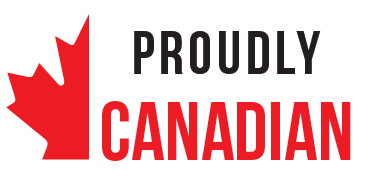Fleet fuel consumption is a crucial metric for any business that relies on transportation. It can directly impact your bottom line, affecting both costs and productivity. At Brown’s Fuels, we understand the importance of efficient fleet management and have been helping businesses with their fueling needs for years. However, we’ve noticed some common mistakes many businesses make when tracking their fleet fuel consumption. Here are the most common five:
1. The Pitfall Of Inadequate Communication
Communication is the backbone of effective fleet management. It’s imperative for everyone involved, from drivers to fleet managers, to understand their roles and responsibilities. A lack of communication can lead to misunderstandings and errors in fuel tracking.
To avoid this, establish clear lines of communication. Ensure everyone understands the importance of accurate fuel tracking and reporting, and provide training if necessary. Regularly update your team about any changes or updates in your fuel management strategy.
2. The Risk Of Not Setting Up Fueling Schedules
Fueling schedules are a simple yet effective way to manage your fleet’s fuel consumption. Without a set schedule, vehicles may run low on fuel at inconvenient times, or fueling may occur with high prices.
Establish a consistent fueling schedule based on factors such as vehicle usage, fuel economy, and gas price trends. This ensures that your vehicles are always adequately fueled and helps you take advantage of lower fuel prices.
3. The Mistake Of Overlooking Odometer Readings
Odometer readings are critical in tracking fuel consumption. They allow you to calculate fuel efficiency and identify any potential issues with specific vehicles. Ignoring these readings can result in inaccurate fuel consumption data.
Make it a habit to record odometer readings regularly. Encourage drivers to report any discrepancies or issues immediately. This practice will help you maintain accurate records and make informed decisions about your fleet’s fuel consumption.
4. The Oversight Of Not Implementing Alerts
Alerts can be valuable in managing fleet fuel consumption. They can notify you of significant changes in fuel consumption, allowing you to address issues promptly. Without these alerts, you may miss critical information that could save your company money.
Consider implementing a fuel management system that offers alerts for various scenarios, such as sudden increases in fuel consumption or vehicles that are due for maintenance. These alerts can help you stay on top of your fleet’s fuel usage and take action when necessary.
5. The Drawback Of Relying On Outdated Technology
In today’s digital age, relying on outdated technology or manual methods can hinder your ability to track and manage your fleet’s fuel consumption effectively. It can lead to inaccuracies, inefficiencies, and missed opportunities for cost savings.
Invest in modern fleet management technology that automates fuel tracking and provides real-time data. This improves accuracy and saves time and resources, allowing you to focus on other essential aspects of your business.
Choose Brown’s Fuels For Your Fleet Fueling Needs
Avoiding these common mistakes can significantly improve your fleet’s fuel efficiency and save your company money. However, managing a fleet and fuel consumption can be challenging. That’s where we come in.
Brown’s Fuels is an “on-call” fuel supplier in Ontario dedicated to meeting your fleet’s fueling needs. We offer various services, from fleet fueling to wheel-to-wheel refueling, tailored to your specific requirements. Our automated computer logging program allows us to accurately identify and record fuel deliveries, enabling you to monitor driver performance and make better decisions.
We believe in the power of relationships and promise a one-on-one professional service that will leave you “wowed.” Ready to take the next step in making your fleet more efficient? Contact us today for a free consultation. Let us show you how Brown’s Fuels can improve your bottom line.

